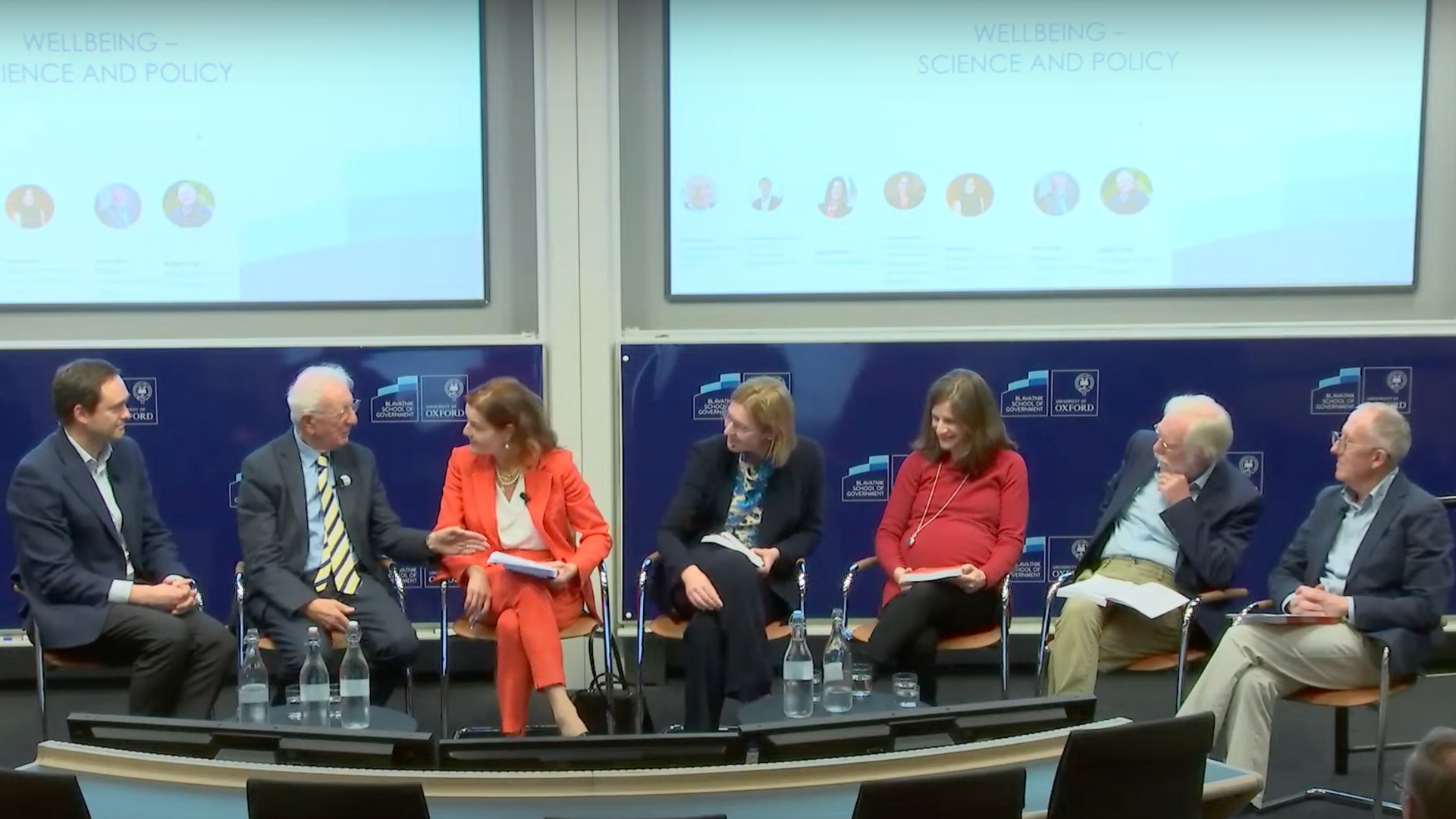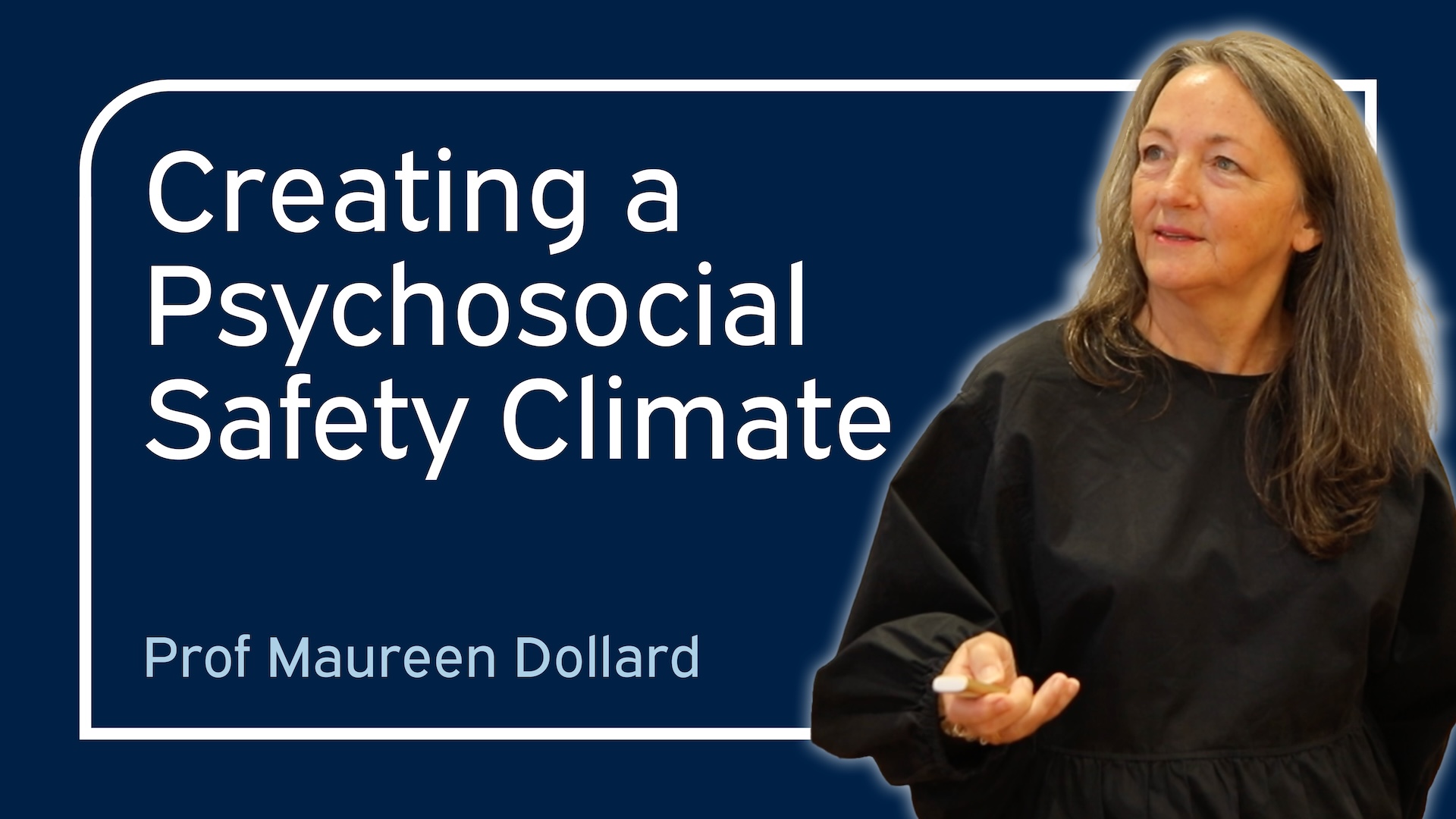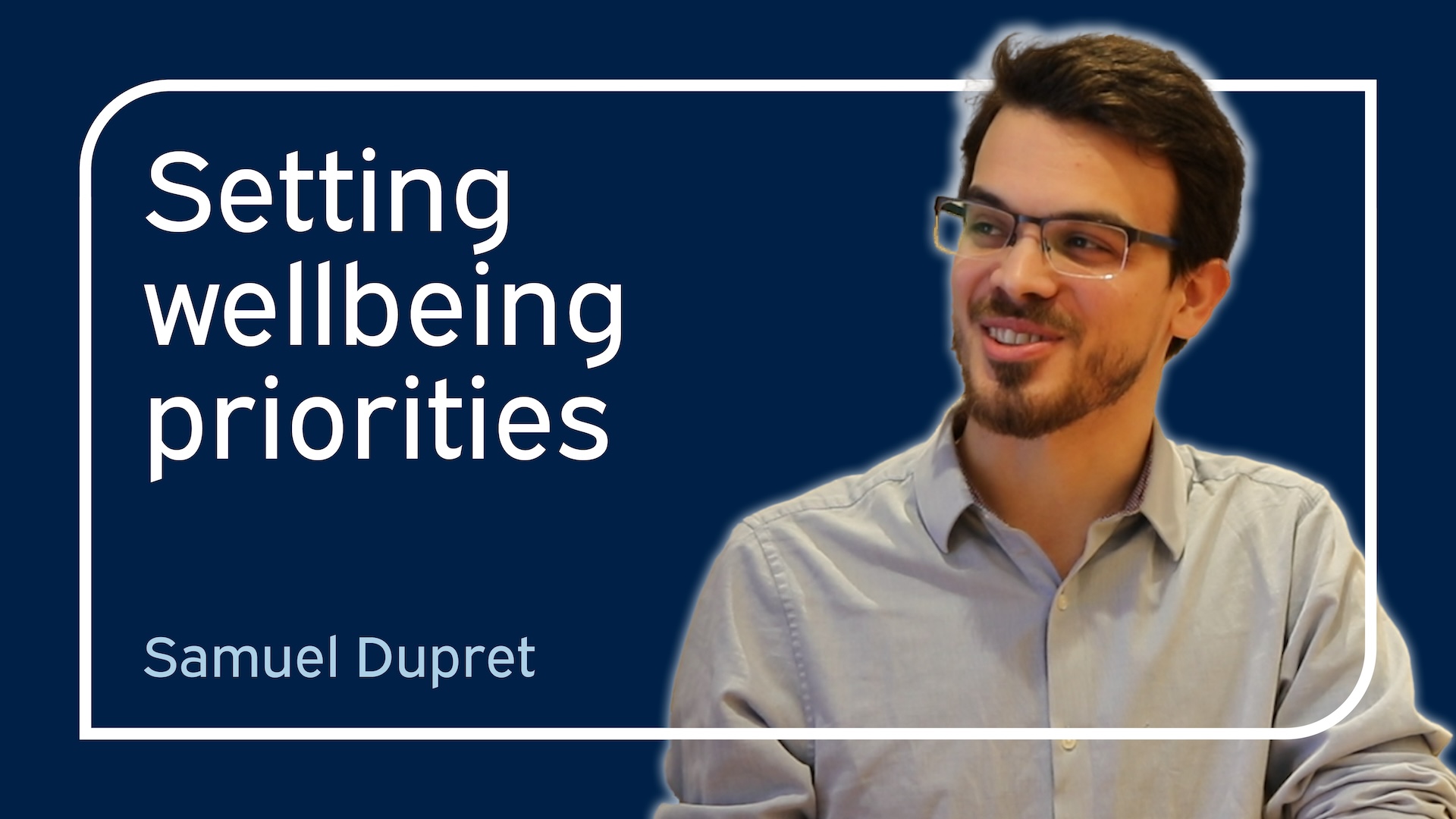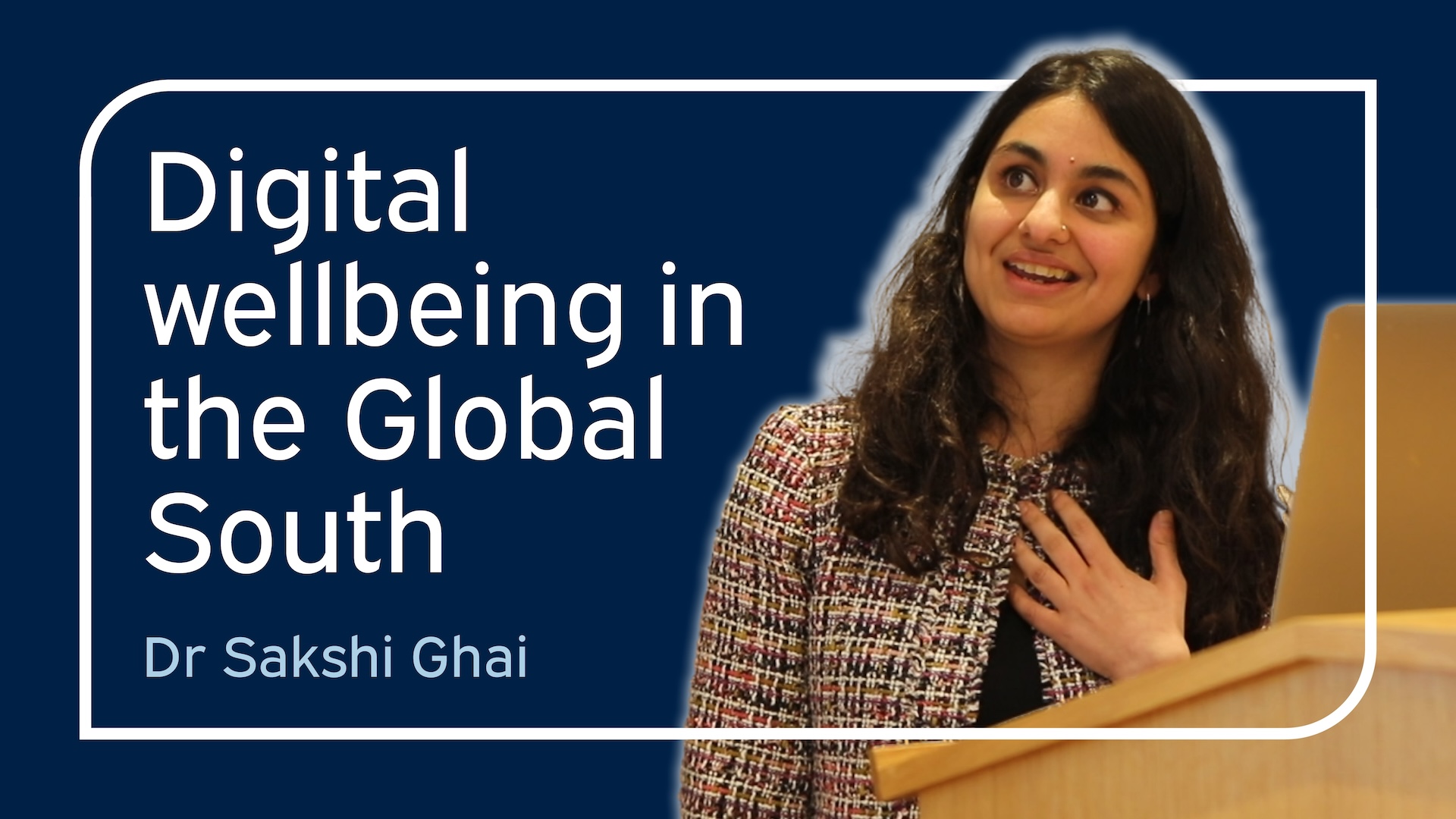Viewing archives for Hybrid
A research presentation by Prof Daniel J. Benjamin
Decomposing variance in job quality: the role of the workplace
Sustaining Workplace Health & Wellbeing Programmes
Subjective changes or subjective levels in life satisfaction: which performs better?
Wellbeing and Climate Change
Wellbeing: Science and Policy
What produces a happy society and a happy life?
Written by two of the world’s leading experts on the economics of wellbeing, Richard Layard and Jan-Emmanuel de Neve, the book Wellbeing: Science and Policy shows how wellbeing can be measured, what causes it and how it can be improved. This interdisciplinary concept brings us new notions about how building a happier society is also a path to implementing successful policies.
The event will start with a brief presentation by the authors, followed by an expert panel moderated by the Dean of the School of Government, Ngaire Woods. On it, Professors Anna Petherick, Kate Orkin, Paul Collier and Roger Crisp will explore how their research in the fields of policy, economics, philosophy, and development interacts with the study of happiness. The panel will close with an open Q&A session.
All attendees will have the chance to win a copy of the book and are invited to stay for a drinks reception at the Blavatnik School building.
The Lemann Foundation Programme hosts this event in partnership with the Wellbeing Research Centre.
Speakers
Richard Layard is a leading British economist, who thinks society’s goal should be the wellbeing of the people. His landmark book Happiness: Lessons from a New Science has influenced policymakers worldwide. He is a co-founder of Action for Happiness, of the World Happiness Report and the World Wellbeing Movement. In 2020, he was awarded the Lifetime Achievement Award by Britain’s Economic and Social Research Council.
Jan-Emmanuel De Neve is a Belgian economist and professor at the University of Oxford where he directs the Wellbeing Research Centre. He is best known for his research on the economics of wellbeing, which was selected among ‘The Management Ideas that Mattered Most’ by Harvard Business Review, and he was awarded the Veenhoven Award for his contributions to the scientific study of happiness. He is an editor of the World Happiness Report and co-founder of the World Wellbeing Movement.
Ngaire Woods is the founding Dean of the Blavatnik School of Government and Professor of Global Economic Governance at Oxford University. Her research focuses on how to enhance the governance of organisations, the challenges of globalisation, global development, and the role of international institutions and global economic governance.
Anna Petherick is Associate Professor of Public Policy at the Blavatnik School of Government, University of Oxford, where she directs the Lemann Foundation Programme, and lectures on the core graduate course, the Politics of Policymaking, as well as teaching several executive courses. Anna’s research explores the connections between gender, identity, political polarisation, corruption, trust, and integrity. From 2020 onwards, she has also focused on the social and political aspects of COVID-19.
Kate Orkin is a Blavatnik School Associate Professor in Economics and Public Policy and a Supernumerary Fellow of Merton College. Her research focuses on urban labor markets, mental health, cash transfers, and interventions in developing countries.
Paul Collier Blavatnik School Professor of Economics and Public Policy and a professorial Fellow of St Antony’s College. His research explores civil war, aid impacts, democracy in low-income societies, urbanization, private investment in African infrastructure, and organizational cultures.
Roger Crisp is a Professor of Moral Philosophy, Uehiro Fellow, and Tutor in Philosophy at St Anne’s College. His research encompasses various areas within Moral Philosophy, such as the History of Philosophy, Metaethics, Normative Ethics, and Practical Ethics.
Valuing the Human; Psychosocial Safety Climate as the ‘Cause of the Causes’ of Work Stress
From obscurity to mainstream, Psychosocial Safety Climate (PSC) has emerged as a prominent evidence based multilevel theory for explaining worker psychological health and wellbeing. PSC refers the organisation’s safety management system for psychosocial risk factors at work. PSC is a leading indicator of a wide range of future psychosocial risks and mental health outcomes. Despite progress in national policy approaches to require the assessment of psychosocial risk, there is a blind spot in recognising that the biggest risk of all is a poor organisational system (i.e., PSC), which can be assessed, benchmarked and regulated. Eyes wide open, work-related mental health problems are increasing so is makes sense to target root causes. How PSC forms, is linked to socioeconomic political systems, national policy, and union density and is transmitted within organisations, relates to psychosocial risks, predicts workers compensation claims and costs, relates to depression and antidepressants, can be improved in interventions, and forms the foundation of human-centred future of work, are themes in the crosshairs for discussion in the presentation.
Setting Wellbeing Priorities in the Real World
Digital well-being in the Global South
The science and policy of wellbeing
What produces a happy society and a happy life?
The discipline of wellbeing science seeks to answer this question using empirical evidence about what makes lives more worth living. It aims to transform our ability to base our decisions on the outcomes that matter most, namely the wellbeing of us all including future generations.
Join Professor Lord (Richard) Layard and Professor Jan-Emmanuel De Neve, co-authors of a recent book “Wellbeing: Science and Policy”, as they discuss with Professor Sir Charles Godfray, Director of the Oxford Martin School, how wellbeing can be measured, what causes it and how it can be improved.
To register to attend, either in person in Oxford or online, please visit oxfordmartin.ox.ac.uk/events/wellbeing.



